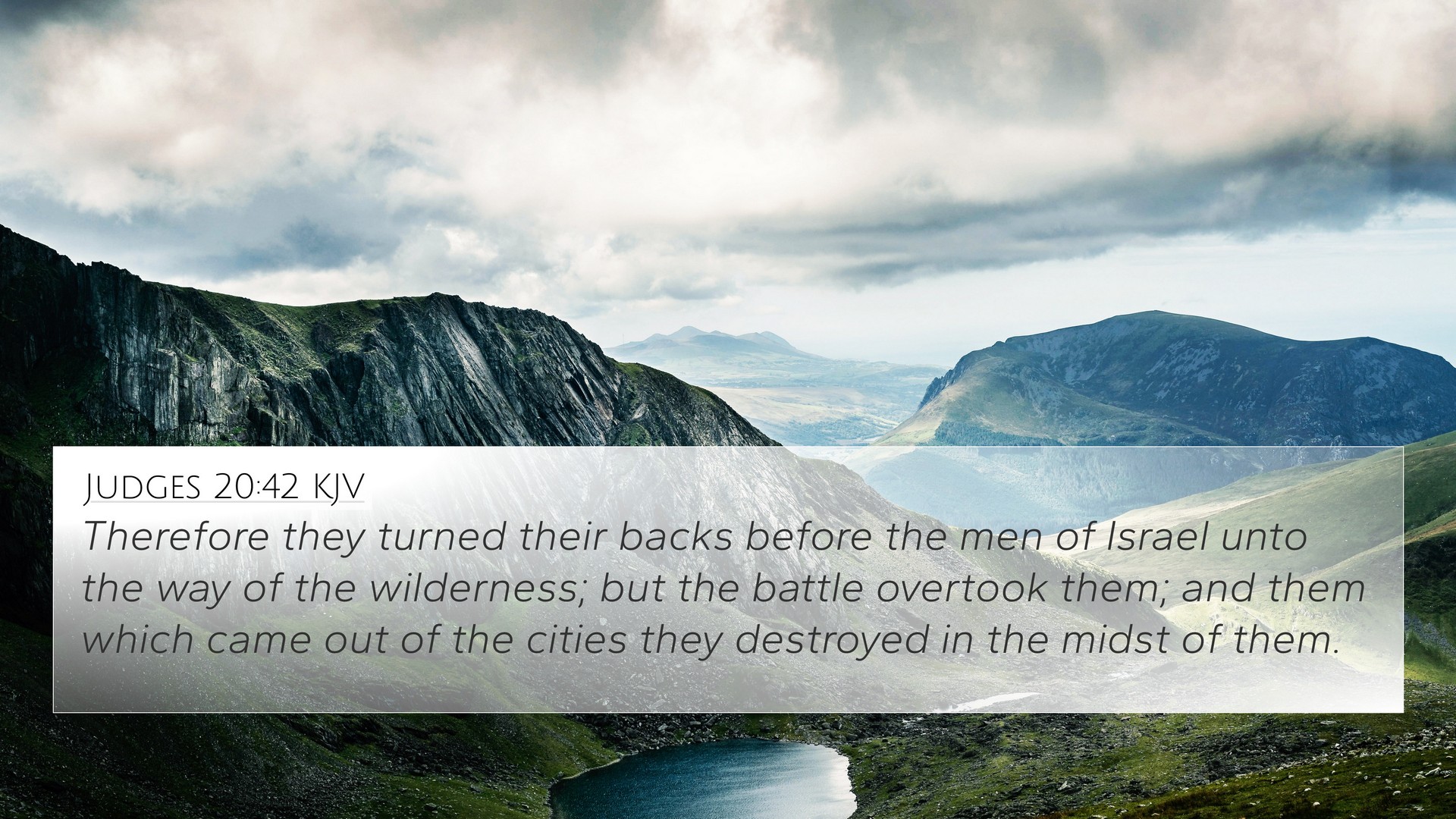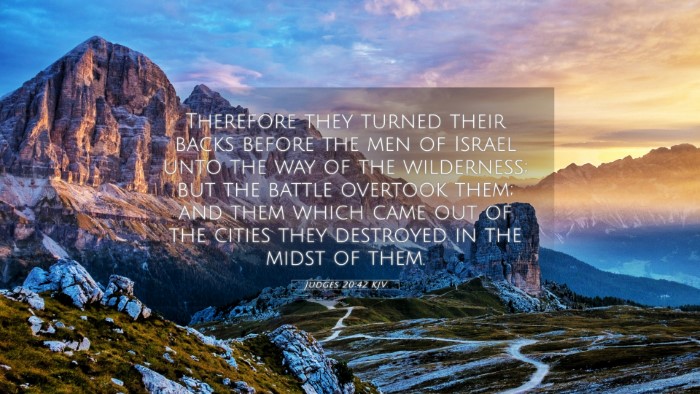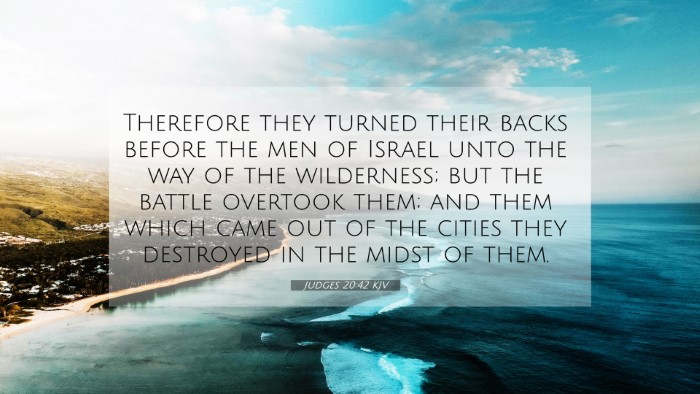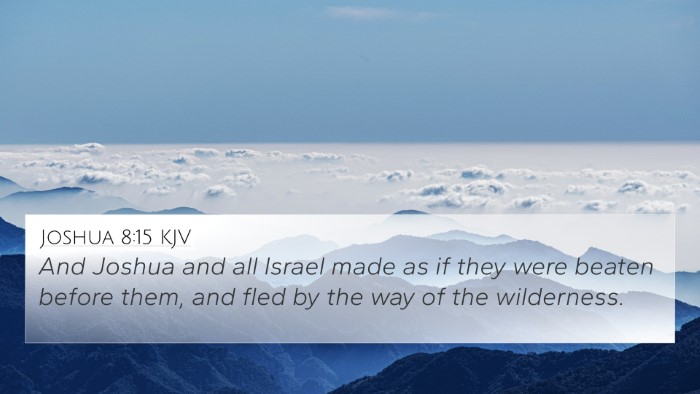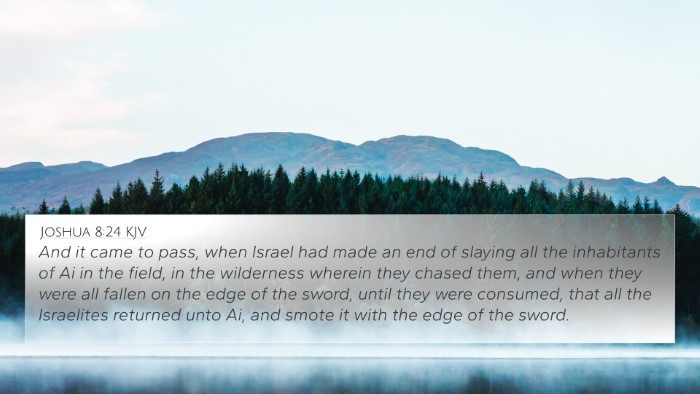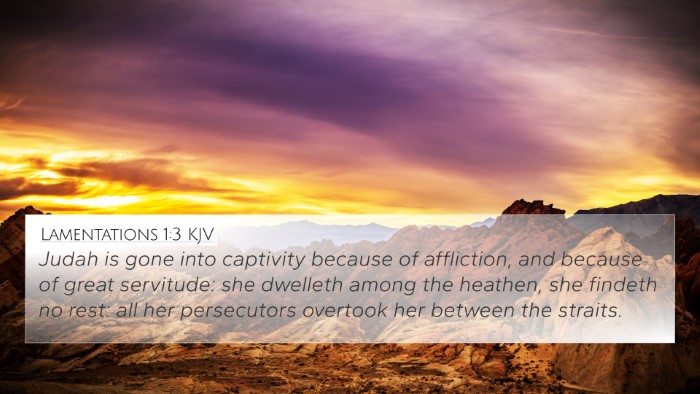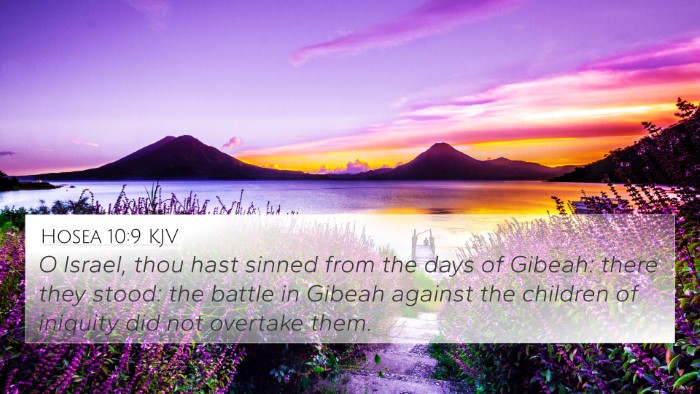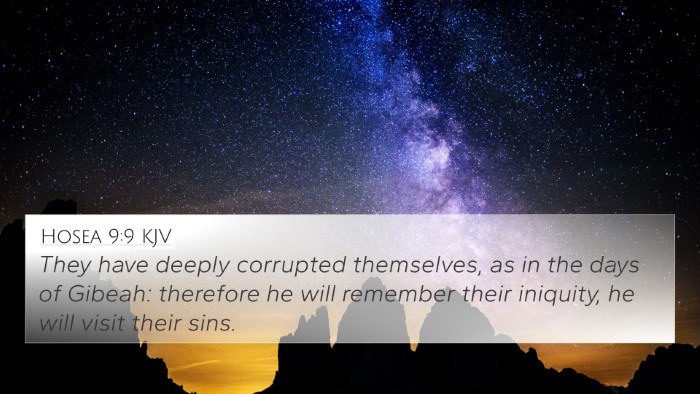Meaning and Interpretation of Judges 20:42
Judges 20:42 reads: "Therefore they turned their backs before the men of Israel unto the way of the wilderness; but the battle overtook them; and them which came out of the cities they destroyed in the midst of them."
In this verse, we witness a critical moment during the battle between Benjamin and the rest of Israel. The context is rooted in the larger narrative of civil strife among the tribes of Israel. To provide a comprehensive interpretation, we will explore insights from several renowned public domain commentaries, including those by Matthew Henry, Albert Barnes, and Adam Clarke.
Contextual Background
The Book of Judges narrates a period of Israelite history characterized by a lack of centralized leadership and increasing moral decline. Judges 20 specifically deals with the collective response of the Israelite tribes against the tribe of Benjamin for their grievous offense. The aggression leads to a civil war that emphasizes themes of justice and the consequences of sin.
Summary of Insights from Commentaries
Matthew Henry's Commentary
According to Matthew Henry, this verse illustrates the dire consequences of moral corruption and the chaos that ensues when justice is not attained. The Israelites, in attempting to execute divine justice against the perpetrating tribe, face the reality of warfare and loss, depicting a deeper lesson about the gravity of sin and the potential for destruction if sin goes unchecked.
Albert Barnes' Notes
Albert Barnes points out that the verse captures the moment of retreat for the Benjamites. The wording denotes a desperate flight of the Benjamites towards the wilderness, symbolizing not just physical defeat but also a spiritual and moral abandonment. The verse serves as a reminder of the Israelite unity and the collective effort to address sin. Additionally, the mention of cities being destroyed indicates the totality of divine judgment on the sin of the tribe, aligning with God's earlier commands concerning sin in the land.
Adam Clarke's Commentary
Adam Clarke emphasizes the significance of the wilderness metaphor in this verse. The wilderness represents a place of desolation and spiritual barrenness, aligning with the fate of those who turn away from righteousness. Clarke suggests that the verse exemplifies the disconnect between the people of Benjamin and God’s favor, as turning their backs signifies their rejection of divine leadership. The destruction that follows illustrates the serious repercussions of sin both at an individual and community level.
Bible Cross-References
- Deuteronomy 20:17 - God's command regarding the destruction of cities due to their sins.
- Judges 19:30 - The shocking act of the Levite’s concubine that instigates the civil war, unveiling societal corruption.
- Judges 21:10-12 - The Israelites' directed efforts to deal with the remnants of Benjamin.
- 1 Samuel 14:48 - The larger narrative of Israel’s battles and frequent reliance on God during conflicts.
- Galatians 6:7-8 - Reaping what one sows, relating to the consequences of Israel's actions in Judges.
- Romans 12:19 - God's justice versus human vengeance; a reflection upon the results of Israel's actions.
- Jeremiah 7:24-26 - The tendency to stray from God’s commands, akin to Israel’s struggles during this period.
- Proverbs 14:34 - Righteousness promoting a nation, reflecting the broader outcomes of the Israelites’ moral choices.
- Hebrews 10:31 - The fear of falling into the hands of the living God, relevant to Israel’s plight in response to sin.
- Matthew 5:13-16 - The salt and light metaphor, speaking to Israel's role and the repercussions of failing to live righteously.
Connecting Themes
The narrative in Judges 20:42 emphasizes several themes such as:
- Divine Judgment: The outcome of battle reflects how God holds nations accountable for moral failings.
- Social Unity: Highlights how the tribes of Israel came together to confront a common sin, reinforcing the importance of community in the face of wrongdoing.
- Consequences of Sin: The physical and spiritual desolation showcased through the flight of the Benjamites exemplifies the dire results of sin.
- Historical Reflection: As believers explore this passage, connections can be drawn to Christ’s teachings on sin and retribution, marking the transition from Old Testament justice to New Testament grace.
Tools for Bible Cross-Referencing
To dive deeper into biblical connections and understand the implications of Judges 20:42, consider utilizing the following:
- Bible Concordance: Useful for finding specific verses related to key themes or words.
- Cross-Reference Bible Study: Analyze the relationships between specified verses and broader themes within Scripture.
- Bible Reference Resources: Access comprehensive materials that detail connections between various biblical texts.
- Bible Chain References: Follow thematic threads throughout the Scriptures to uncover deeper insights.
Conclusion
Judges 20:42 serves as a poignant reminder of the consequences of collective sin and the importance of adhering to God's commandments. By cross-referencing this verse with various passages throughout the Bible, believers can gain a fuller understanding of the moral and spiritual truths exemplified in this narrative. The lessons within this passage resonate through historical contexts and echo into personal application today, emphasizing the eternal nature of divine justice and grace.
